From the Jan. 6 attack on the Capitol to the tornadoes that tore through Kentucky, there were all kinds of upheaval in 2021. See the year in review.
The Associated Press contributed to this report.
From the Jan. 6 attack on the Capitol to the tornadoes that tore through Kentucky, there were all kinds of upheaval in 2021. See the year in review.
The Associated Press contributed to this report.
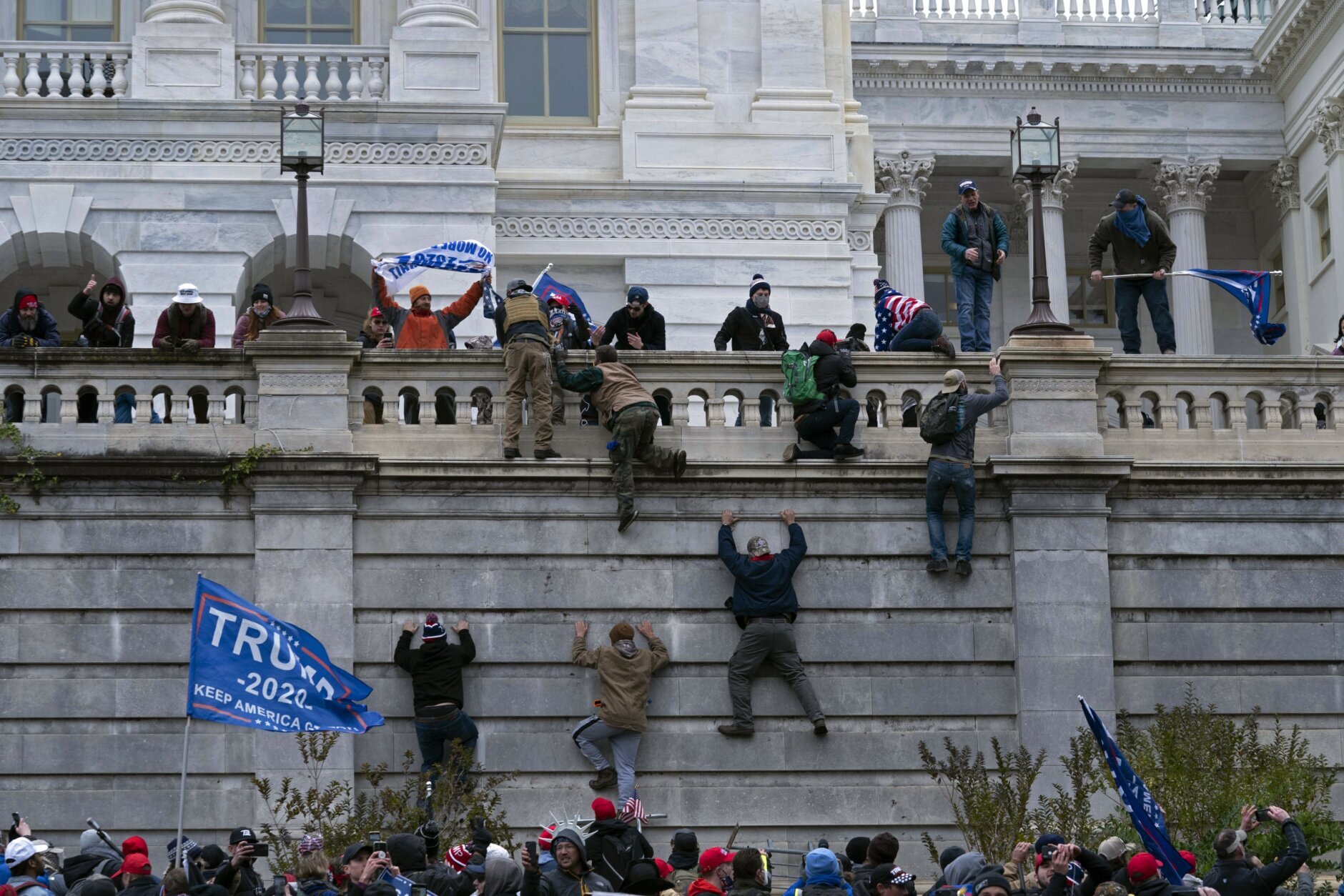 1/10
1/10
Jan. 6
The most important story in American politics happened very early in the year: On Jan. 6, after several days of protests and a speech by then-President Donald Trump in which he continued to claim falsely that the 2020 presidential election was stolen from him, a mob of Trump supporters attacked the U.S. Capitol while Congress was counting the votes of the Electoral College and certifying President Joe Biden’s victory.
Five people were killed that day, including a Capitol Police officer and an attacker who was shot while trying to break into the chamber where members of Congress were hiding. Two Capitol Police officers died of suicide in the following days.
Congress halted the vote count for several hours, but finished it later that night.
That day continues to reverberate through American life:
Trump was banned from Twitter and Facebook days later for posts that justified the attack, saying Vice President Mike Pence “didn’t have the courage” to overturn the election results based on Trump’s lies about voter fraud — a power Pence didn’t actually have.
The former president continued to lie for the rest of the year about supposed voter fraud in the 2020 election, despite losing 61 of 62 court cases on the matter, including in the Supreme Court. In some cases, his lawyers have been sanctioned for knowingly bringing false claims. (Indeed, one of his lawyers, defending herself in a lawsuit, told a court in March that “no reasonable person” would consider her statements “truly statements of fact.”)
An Associated Press analysis found that allegations of voter fraud affected 475 ballots in the swing states that turned the election.
The House voted to impeach Trump a week after the attack, for the second time in his presidency; a month later, after he was out of office, the Senate voted 57-43 to convict him, which fell short of the 60 votes needed.
As of early December, more than 670 people have been charged with federal crimes related to the attack. At least 140 of them have pleaded guilty, mostly to misdemeanor charges.
While several Republicans in each chamber voted to impeach and convict Trump, things changed quickly and the ex-president’s hold on his party was soon as strong as ever. Two examples: U.S. Rep. Andrew Clyde, of Georgia, was pictured Jan. 6 helping Capitol Police officers barricade the House chamber from the rioters. By mid-May, he compared the attack to “a normal tourist visit.” And in December, former U.S. Sen. David Perdue continued to push debunked claims of election fraud. He won Trump’s endorsement in the upcoming Republican primary for governor.
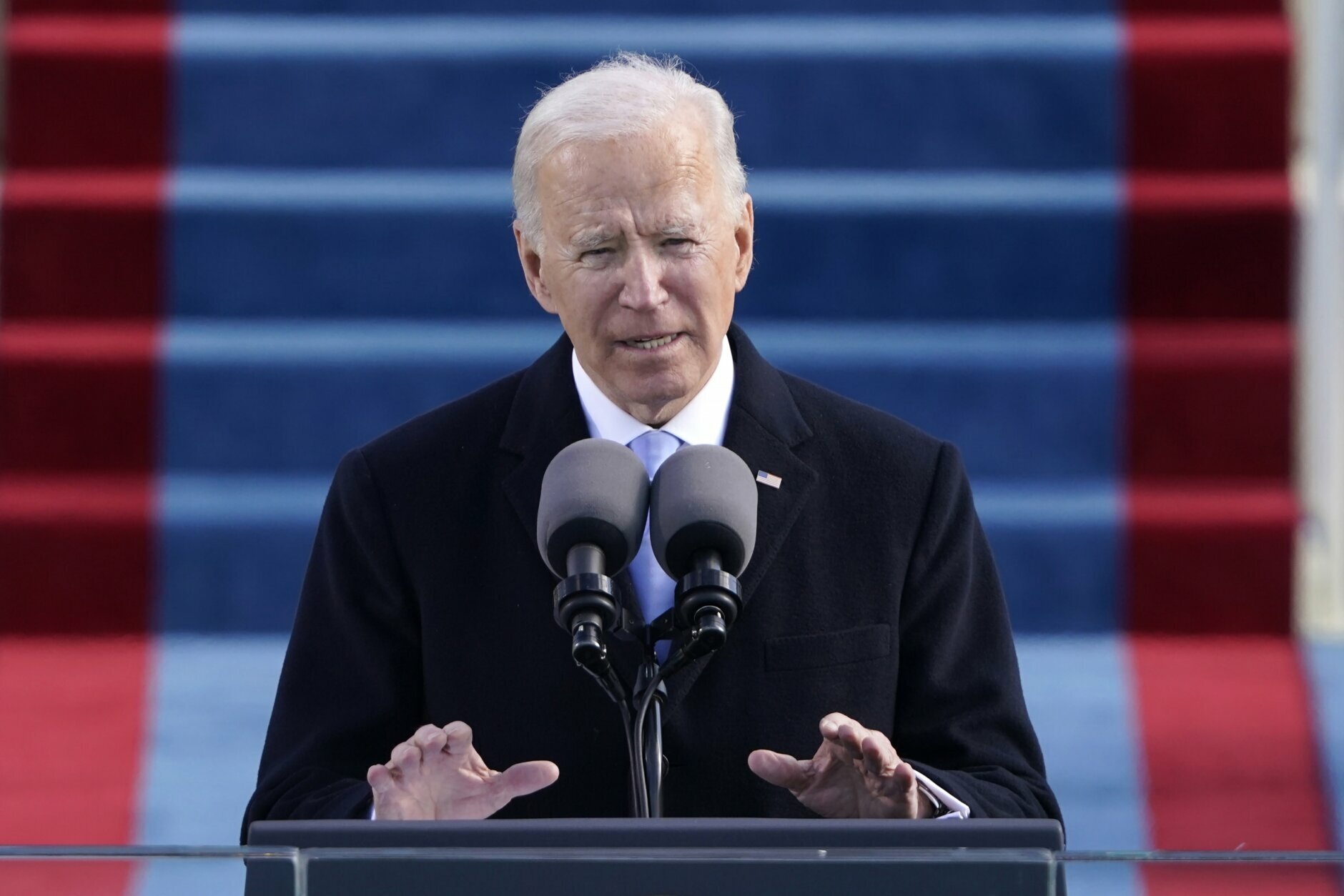 2/10
2/10
Inauguration
Despite the attempt to block it, President Joe Biden and Vice President Kamala Harris were inaugurated Jan. 20. Harris became the first woman vice president, as well as the first Black and South Asian vice president. Former president Trump did not attend.
Other firsts in the new administration included Pete Buttigieg as the first openly gay Cabinet member and Deb Haaland as the first Native American Cabinet member.
January was also notable politically because the night before the Jan. 6 attack on the Capitol, Democrats Raphael Warnock and Jon Ossoff, both of Georgia, won special elections to the U.S. Senate, resulting in a 50-50 split of the chamber. Harris’ tiebreaking vote thus gave control to the Democrats by the slimmest of margins.
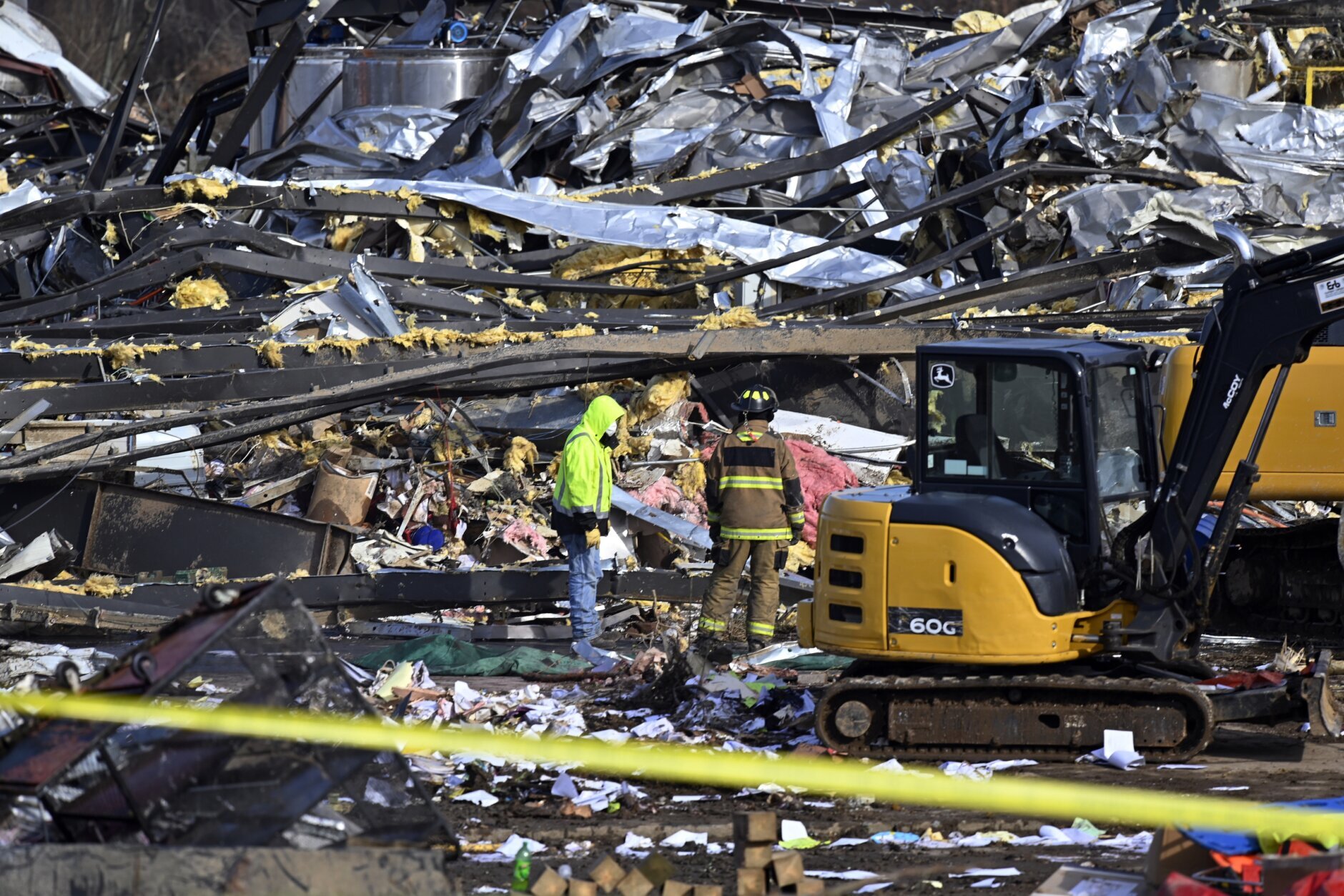 3/10
3/10
Weather
Extreme weather hit the U.S. at seemingly regular intervals in 2021. A few of the most memorable:
Texas, the nation’s largest energy-producing state, was caught flat-footed by a winter storm in late February that knocked out its power grid. About 210 people died, and millions lost power, some for days.
All through the summer, the Northwest suffered through heat that broke records by huge margins, with temperatures in some normally temperate spots going over 100 for days. Portland, Oregon, reached 116 degrees in August.
Fire season in California took another huge toll, with the largest blaze being the Dixie fire, which began in July and lasted until late October, burning millions of acres, destroying about 1,000 buildings and essentially wiping out the town of Greenville.
In August, Hurricane Ida hit Louisiana as a Category 4 storm. It was so powerful that the remnants created tornadoes as far north as Maryland and flooding all the way up in New York, where 11 people drowned.
And in December, a string of at least 41 tornadoes hit the Midwest, with 16 in Tennessee and eight in Kentucky. On Dec. 17, the death toll in Kentucky reached 77.
 4/10
4/10
Vaccinations
While the first COVID-19 vaccinations rolled out in December 2020, tens of millions of doses were administered in 2021, with pandemic-weary Americans hoping for a return to normal life. (The American Journal of Managed Care has a comprehensive timeline of the rollout.)
Yet surges of the virus continued, particularly among the unvaccinated, and variants such as delta and omicron left the nation looking at the possibility of more cases, hospitalizations and deaths as another holiday season approached.
An unanticipated problem: The prevalence of misinformation and disinformation, often foreign in origin, about vaccines. Such disinformation has become big business for some of its purveyors.
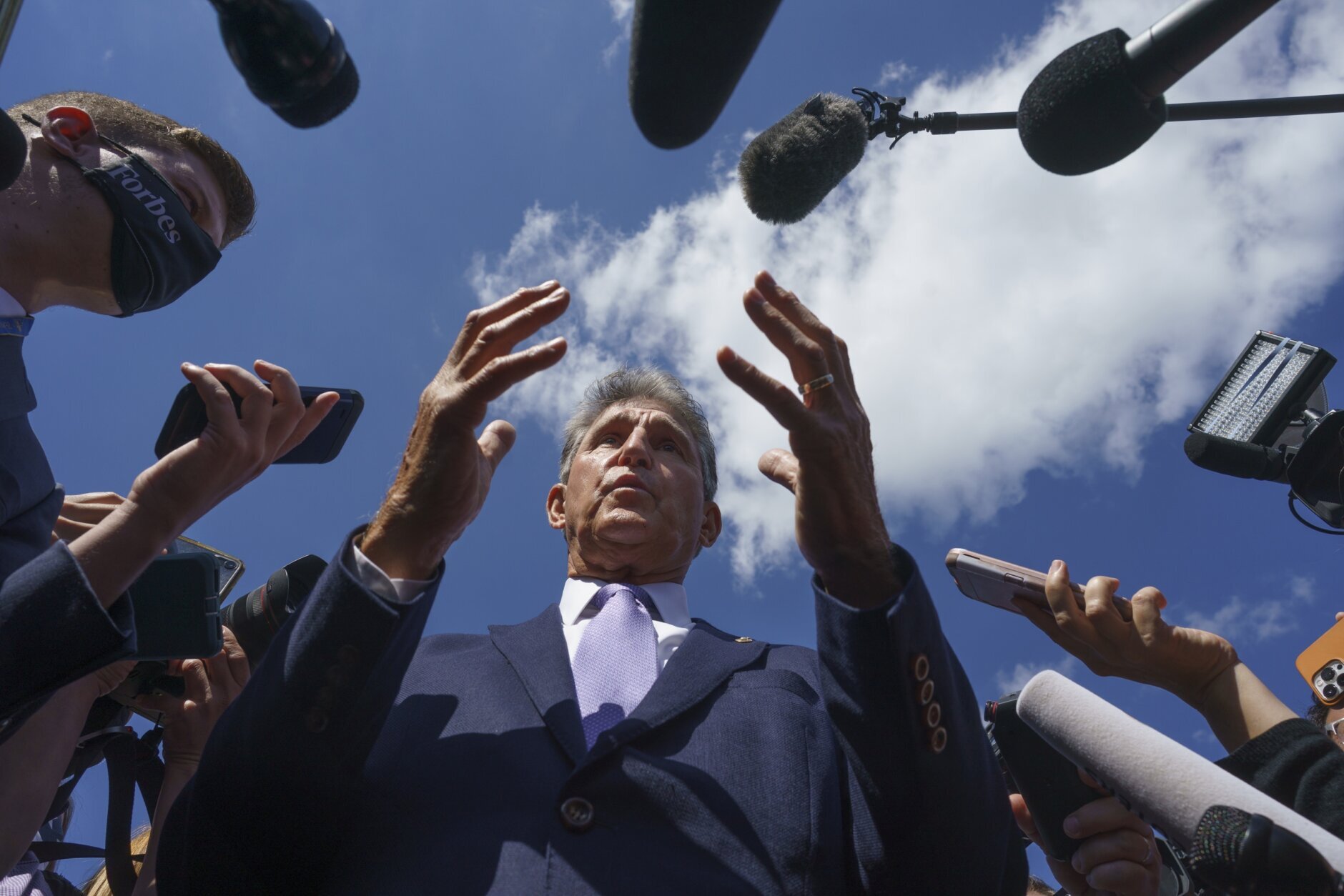 5/10
5/10
Big bills
While Biden signed a $1.9 trillion COVID-19 relief bill on March 11, other ambitious parts of his agenda, including the double-whammy bipartisan infrastructure bill and the Build Back Better bill, dragged through Congress. The infrastructure bill passed, with some Republican support, and was signed into law in November.
The Build Back Better Act, on the other hand, started as an ambitious outlay of spending to improve such areas of American life as child care, student debt, prescription drug price controls, housing aid, job training and more.
It began at $3.5 trillion of spending over 10 years, as well as the tax increases to pay for it, and has been whittled away ever since; the tax increases have been taken out, as have programs such as universal pre-K and free community college. And after months of negotiation, conservative Democratic Sen. Joe Manchin said in late December that he would not support the then-$2 billion bill.
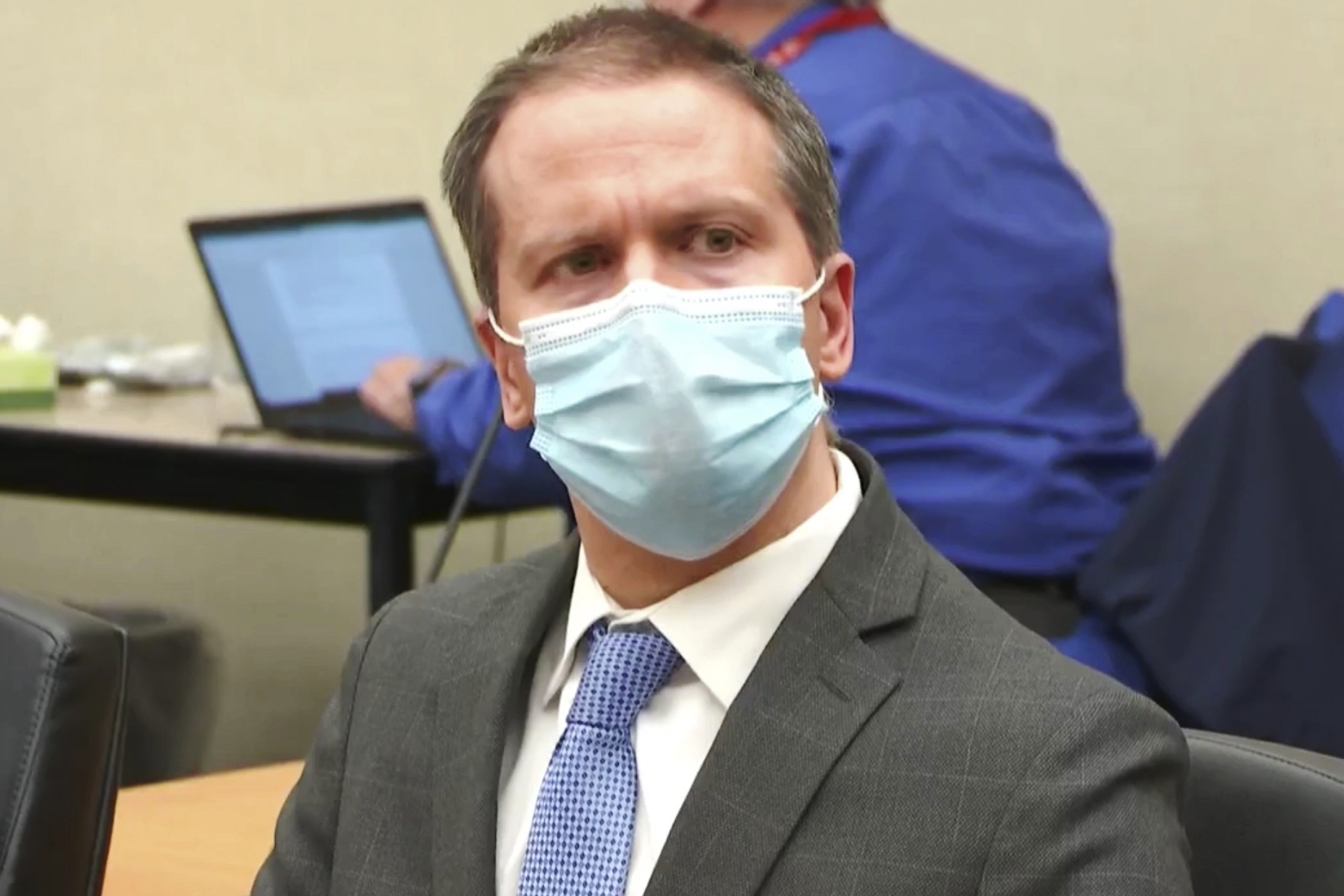 6/10
6/10
Trials
The results of a trio of trials painted a mixed picture regarding race in the United States in 2021:
In April, former Minneapolis police officer Derek Chauvin was convicted of murder in the killing of George Floyd, whose neck Chauvin knelt on for nine and a half minutes in front of a crowd of onlookers on May 25, 2020. He was sentenced to 22 and a half years in June, and has since pleaded guilty to federal charges, while the three other former officers involved in Floyd’s death also face federal charges.
In November, Kyle Rittenhouse, the Illinois teenager who went to a protest over another police shooting of a Black man in Kenosha, Wisconsin, with a gun and shot three people, killing two, was cleared of all charges after claiming he was defending himself.
A week later, Greg McMichael, Travis McMichael and William Bryan were convicted of murder in the death of Ahmaud Arbery, a Black man whom they chased and killed in Georgia in February 2020. The case had received little attention before video was released, making the case, in the words of The Associated Press, “another example in the nation’s reckoning of racial injustice in the way Black people are treated in their everyday lives.”
The three face life sentences at their hearing Jan. 7; a judge will decide whether they will have the possibility of parole.
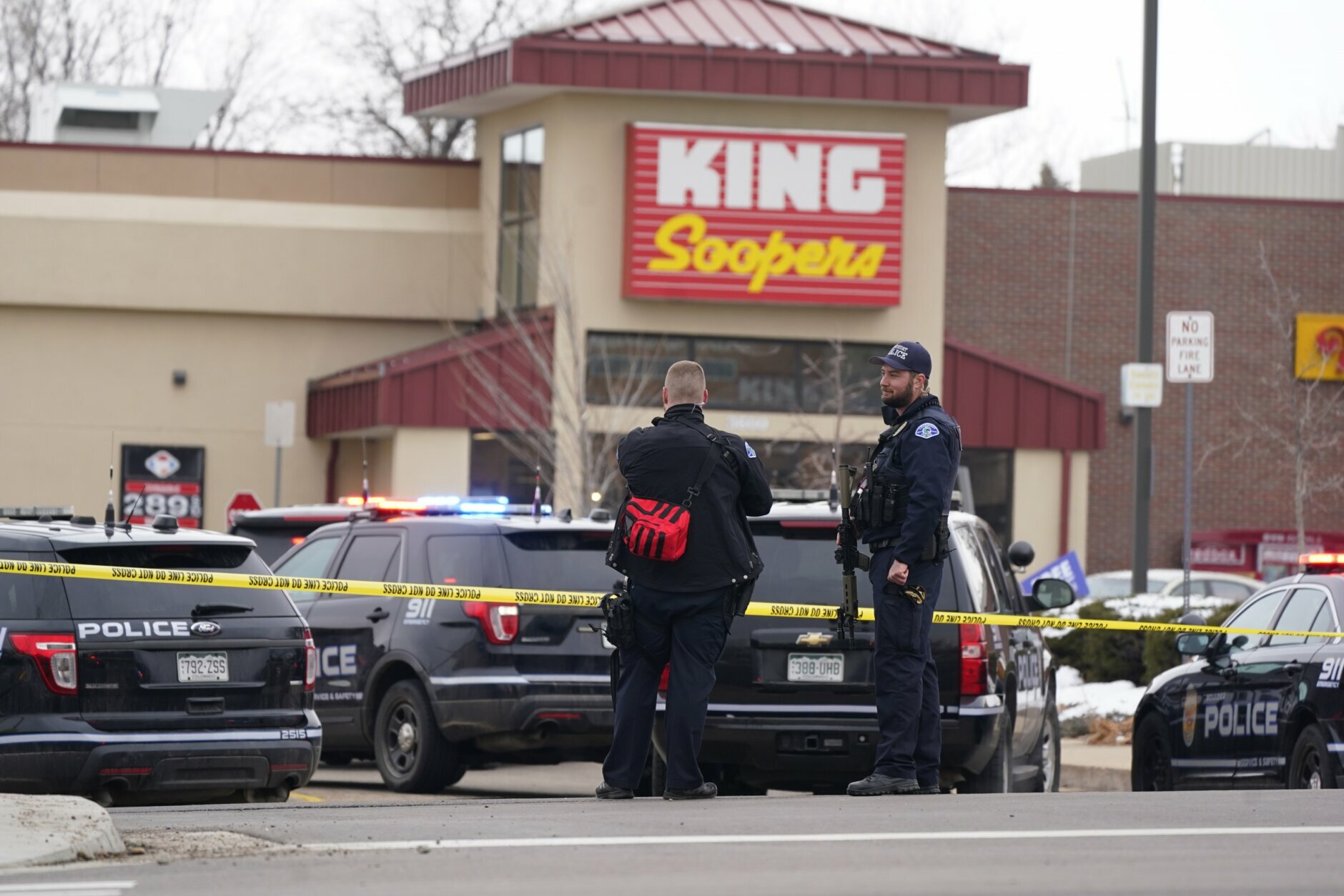 7/10
7/10
Mass shootings
The Gun Violence Archive defines mass shootings as events where four or more people, not including the shooter, are killed or wounded. These are the four deadliest from 2021:
Boulder, Colorado (10 killed March 22)
San Jose, California (10 killed May 26)
Indianapolis, Indiana (9 killed, 7 injured April 15)
Acworth, Georgia (8 killed 1 injured March 16)
How many mass shootings have there been this year? The archive can’t say yet; it takes time to sift through and verify all the police and reports. They did announce on Dec. 17 of this year that there were 611 mass shootings in 2020.
 8/10
8/10
Economy
There weren’t many places to go but up for the U.S. economy in 2021, after a year of pandemic-related economic slowdowns, and the numbers looked good: The Dow set records, while the unemployment rate went down to 4.2% as of the end of November after reaching a high of 14.8% in April 2020. Wages in September rose by the most in 20 years.
The downside was inflation, which, following world trends, hit a 40-year high of 6.8% in November and caused the Fed to predict three interest rate hikes next year.
 9/10
9/10
Olympics
Pandemic restrictions made for a very different Olympics in 2021 — first of all, of course, it was postponed from last year (though called the 2020 Games); for another, there were no fans at most events.
The United States led with 113 medals, although, as The Associated Press pointed out, that constituted fewer medals than Team USA won at the 2016 Rio Games, which had fewer events. But the biggest story, at least from an American perspective, was likely the moment when all-time great gymnast Simone Biles withdrew from the competition.
Between the loss of a family member during the Games and the run-up to testifying along with other gymnasts before Congress about the sexual abuse they suffered at the hands of Dr. Larry Nassar, Biles said she suffered a case of the “twisties” — an inability to keep track of her orientation while doing flips and twists in midair.
Her perspective “never changed so quickly from wanting to be on a podium to wanting to be able to go home, by myself, without any crutches,” Biles said.
It was the first in a series of withdrawals by high-profile athletes from major competitions, topped by that of tennis star Naomi Osaka at this year’s French Open.
 10/10
10/10
Afghanistan
In August, American forces withdrew from Afghanistan, ending the United States’ longest war. The conflict in Afghanistan, begun in response to the terrorist attacks of Sept. 11, 2001, cost the lives of 2,400 American troops and an estimated 100,000 Afghan troops and civilians.
The troop withdrawal was negotiated by then-President Trump in February 2020, in exchange for the cessation of attacks on American soldiers. In April, after consulting with U.S. military officials, Biden said the withdrawal would go on as planned.
In early August, ahead of the withdrawal, the Taliban swept across the country, overwhelming the Afghan army with a speed that surprised observers, including U.S. officials, and deposing President Ashraf Ghani and reestablishing control of the country they ruled from 1996 to 2001.
The withdrawal, combined with the quick takeover of the country, left the airport in Kabul as a sort of last trench for the American presence, with thousands of Afghans clamoring to leave the country, fearful of what Taliban rule will do to the country. About 124,000 did.
Taliban rule was a nightmare for many people the first time around, especially women, who were barred from going to school or working outside the home. The new Cabinet is all-male, but it’s not known yet how women will fare in the new Afghanistan.
International funding to Afghanistan has been suspended and billions of dollars of the country’s assets abroad, mostly in the United States, have been frozen.
The lack of funding has battered the economy, leading to increasing poverty while aid groups warn of a looming humanitarian catastrophe. In December, protesters in Kabul called for the release of the assets, chanting, “Let us eat.”
MORE YEAR-END STORIES